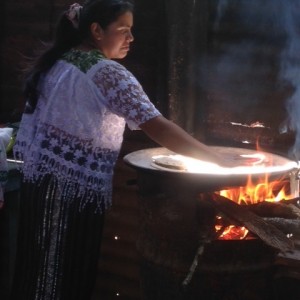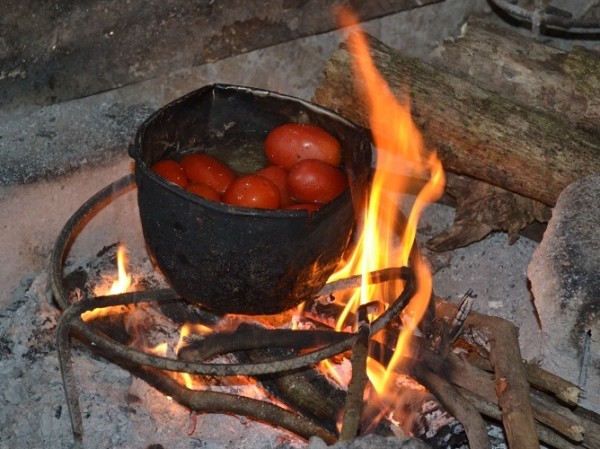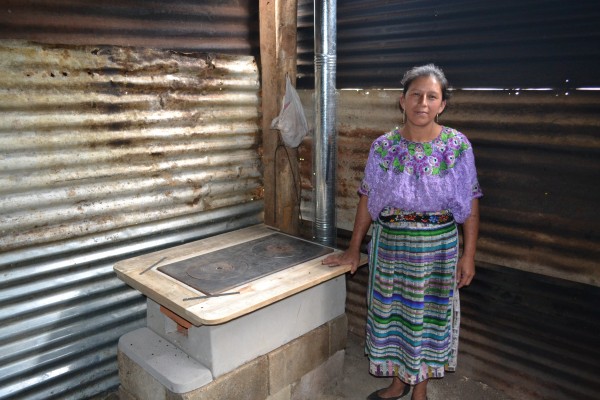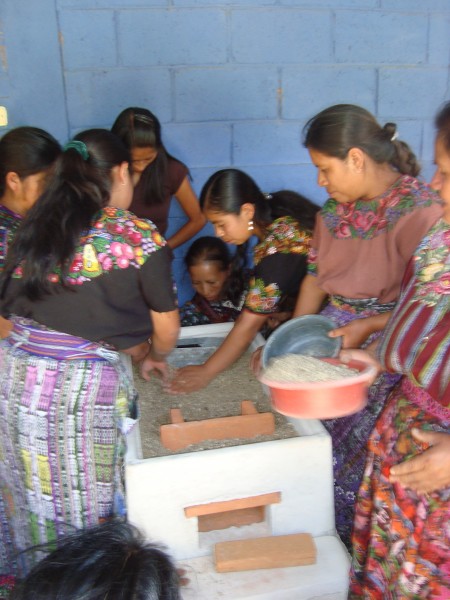Improving Health with Chapina Stoves
Women in rural villages in Guatemala cook between 5 and 7 hours a day, depending on the size of the family. Daily exposure to toxic smoke is one of the world’s biggest – but least well-known killers. The smoke causes deadly chronic and acute health effects including lung cancer, chronic obstructive pulmonary disease, heart disease, and low birth-weights in children born to mothers whose pregnancies are spent breathing smoke from the open fires.
Often toddlers are in the kitchen beside their mothers and suffer child pneumonia and burns. Because burns require prompt medical attention lacking in remote areas, victims often suffer debilitating scarring or death.
Efficient, vented stoves change the way women cook. Using the Chapina stove, they can cook tortillas and pots of beans or rice on the same cooking surface. The stove uses 70% less wood than open fires, and removes the toxic smoke outside. Less wood means less degradation of the nearby forests.
Groups of 25 to 75 women work together to receive stoves. They elect a president, secretary and treasurer of their group. A formal letter is presented to us requesting help, signed by all of the women participating in the group. The cost of the stove is Q1,015 or about $135. So they have ownership of the stove, they purchase the stove for Q200 (about $25) and donors subsidize the remainder. We require they attend training sessions where they learn how to install the combustion chamber bricks, sand, and cooking surface.
On stove delivery day, women, children, and husbands help carry stove components to their houses. Since the women know how to install the stove, they set up their stove in their kitchen. Marlon, Project Coordinator for Hombres y Mujeres en Accion, visits each house to ensure the stove has been installed correctly and answers any questions.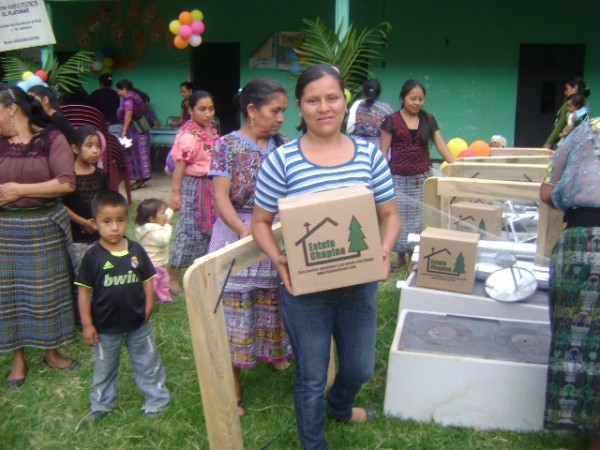
The women report immediate health benefits. They no longer suffer from lung infections, head aches, eye irritations, and they don’t worry about their children getting burned. Juana said “my kitchen is now a place where my family comes to help me cook and talk. Before, I was alone because no one wanted to breathe the smoke.”

